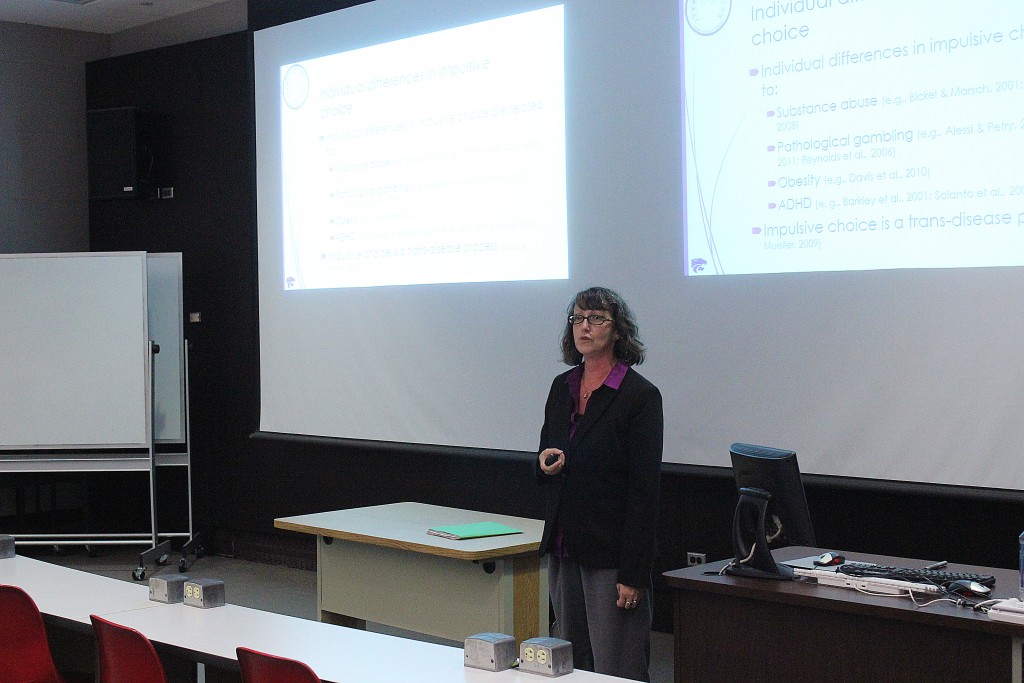
Wait one minute and get a free sandwich, or wait 20 minutes and get two sandwiches with a drink? What someone picks might reveal more than just how hungry they are.
Many believe that one’s ability to wait for a greater reward depends on one’s tendency to be impulsive. Someone who is impulsive would choose the free sandwich after waiting one minute, and someone who is less so would wait the 20 minutes for the bigger meal.
Kim Kirkpatrick, a professor of psychology at Kansas State University, said the motives behind seemingly impulsive choices are not as clear-cut as they may seem. During her talk at Binghamton University, part of the Harpur College Dean’s Speaker Series in Psychological Sciences, she discussed her research on the multiple pathways that lead to decisions.
She found that there are a variety of factors that affect impulsivity, and that determine how a person acts. Kirkpatrick categorized them as distal or proximal factors.
Distal factors are predetermined, like one’s genetics and environment while growing up. Proximal factors are situation-based, such as the motivation felt to wait for something and levels of desire felt for the reward.
Kirkpatrick explained her research, where she compared hyperactive rats with normal rats. The hyperactive rats were significantly more impulsive, proving that genetics could be a determining factor of impulsivity.
She also found variation when studying proximal factors. Many rats would act impulsively in some situations and controlled in others, depending on how beneficial the reward offered was.
To illustrate this, Kirkpatrick presented rats with two levers: one would immediately give a small food reward, and the other would give a larger reward after a time delay. Kirkpatrick found that when she increased the time delay reward, more rats would choose it. But when she increased the delay, more rats went with the immediate option.
Kirkpatrick noted that it is still important to study ways to control impulsivity overall, since it has been attributed to higher Body Mass Index (BMI), lower SAT scores and lack of social and learning skills among humans.
“We need to find out why they’re impulsive, and I think that in doing that, that’s maybe our gateway to trying to develop treatments,” she said.
Attendees like Deanne Westerman, a BU psychology professor, said they gained new ideas for their own research methods.
“Dr. Kirkpatrick’s animal model allows her to test hypotheses with much greater control over extraneous variables,” Westerman said. “The studies that were presented at Friday’s talk were very interesting.”
Kirkpatrick said that while she likes to share her research, she also enjoys being in a place where she can learn from others.
“It’s just a chance to interact with people I might not normally interact with,” Kirkpatrick said. “I’ve met with several other people today that aren’t in my usual circles. I think it’s a fortuitous opportunity to have good intellectual exchange.”


